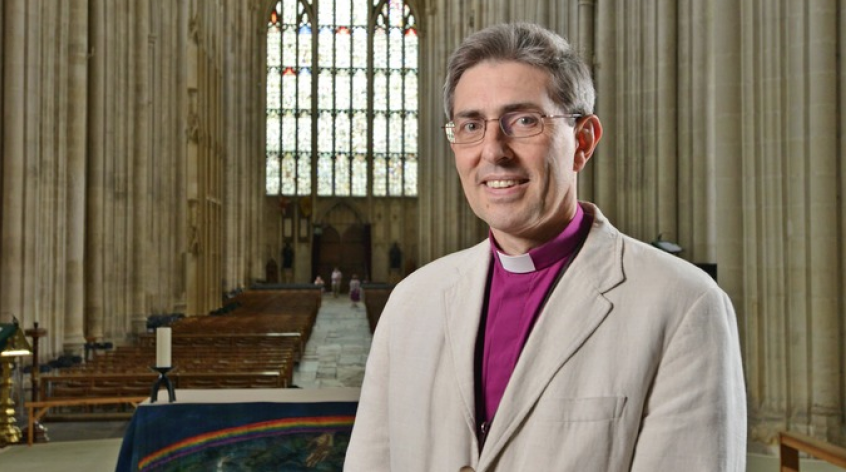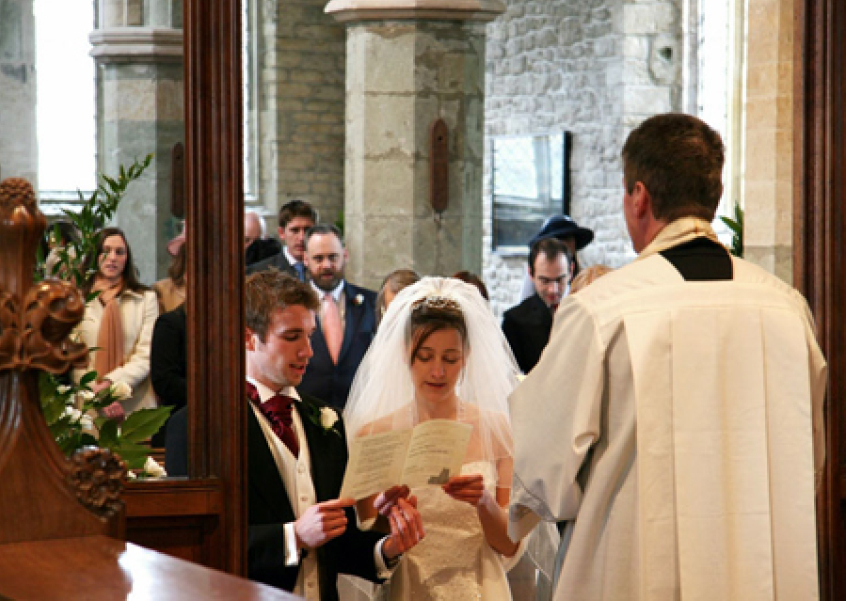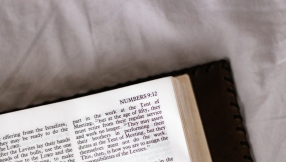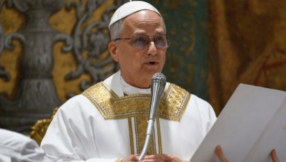Cult-type 'New Religious Movements' could hold weddings in Church of England churches if proposals contained in a new bill pass, according to an Anglican bishop.
John Gummer's ecumenical marriage bill, which passed its second reading in the House of Lords on Friday, could allow 'New Religious Movements', which include controversial groups like Scientologists, the right to use Church of England buildings for weddings.

That is according to Tim Dakin, the bishop of Winchester, who spoke against the bill this morning.
The private member's bill is designed to allow Catholics, Methodists and other Christian denominations' marriages to take place in Church of England buildings.
But Bishop Dakin warned it also 'affords potential legal rights to the use of churches to New Religious Movements with which the Church of England does not have any existing formal ecumenical relationship'.
He said parliament was 'addressing questions of doctrine, creed and ecumenical dialogue, all of which ought properly to sit with the churches themselves'.
He warned 'there is a longstanding constitutional convention' that parliament does not interfere with Church matters. 'This Bill represents a departure from that convention,' he told peers in the House of Lords.

Gummer, Lord Deben, is a former Conservative party chairman and environment secretary who converted to Catholicism 1992 after previously being an Anglican and serving on the CofE's ruling General Synod. He introduced the bill after finding his daughter could not marry in his local Anglican church in Suffolk because she wanted the Catholic ceremony.
He hit back at the bishop's claim and said the bill 'does not tell the Church of England to do anything'.
'It is entirely fictitious to suggest we are breaking the convention,' he said. 'What we are doing is removing a legal impediment for the Church of England to make up its own mind. That is clearly different.'
There is no great difference in the different wedding liturgies between Anglicans, Catholics, Baptists and Methodists but marriage law in the UK is designed around a buildings-based system meaning ceremonies must take place either in a register office, approved premises or in an officially registered place of religious worship. If in a Church of England building, the wedding must be carried out 'according to the rites of the Church of England', according to the 1949 Marriages Act.
Gummer's bill would remove this restriction meaning other denomination's weddings could, if the CofE agreed, take place in Anglican buildings.
Before the debate he told Christian Today: 'My bill doesn't force the Church of England to change. It merely allows them to. At the moment parliament stops the Church of England doing this and all my bill does is remove that impediment. It does what parliament would want.
'It gives the Church of England freedom and if the Church doesn't want to do it, it doesn't have to.'
But the Catholic Church in England and Wales, the Church of England and the Anglican Church in Wales all oppose the move.
The CofE said it allows ministers from other denominations to take other services such as funerals and mass and they can help in some parts of the wedding service but an Anglican minister must lead the marriage vows themselves. A spokesman said: 'We see no need for Lord Deben's Bill, and believe that the current arrangements give sufficient pastoral flexibility for weddings which are conducted in Anglican churches and chapels, involving ministers of different denominations.'













